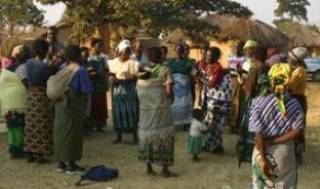Project Summary
The purpose is to study the pattern and severity of childhood pneumonias before and after the introduction of the pneumococcal vaccine, evaluate the vaccine status of children with severe illnesses to estimate vaccine effectiveness, and analyse the cost effectiveness of the pneumococcal vaccine in two districts of Malawi. Acute respiratory infections are one of the leading causes of childhood illness and responsible for ~2 million deaths every year among children under 5.
Pneumonia is the commonest admission diagnosis for many children’s wards at hospitals in Malawi and at primary care health centres. Streptococcus pneumoniae is a major cause of pneumonia, blood stream infection and meningitis. A conjugate vaccine against Streptococcus pneumoniae, targeting the most important disease pathogens, represents a major opportunity to improve global child health.
Malawi was among the first countries in Africa to introduce 13-valent pneumococcal conjugate vaccine (PCV13) in November 2011. Our study is among the first to evaluate the effect of PCV13 on an African health system at hospital, health centre and village clinic levels.
It is not clear how the vaccine will affect the severity of pneumonia and the burden of disease - especially given possible pathogen replacement - falling upon primary, secondary and tertiary health facilities in Malawi, nor the costs that might be saved as a result of vaccine roll-out.
Additions to this grant include work analysing 10 years of retrospective data on cases of childhood pneumonia recorded in hospitals throughout Malawi, setting up a prospective database to record pneumonia cases; and investigating pneumonia treatment failure at community village-clinic level.
 Close
Close


